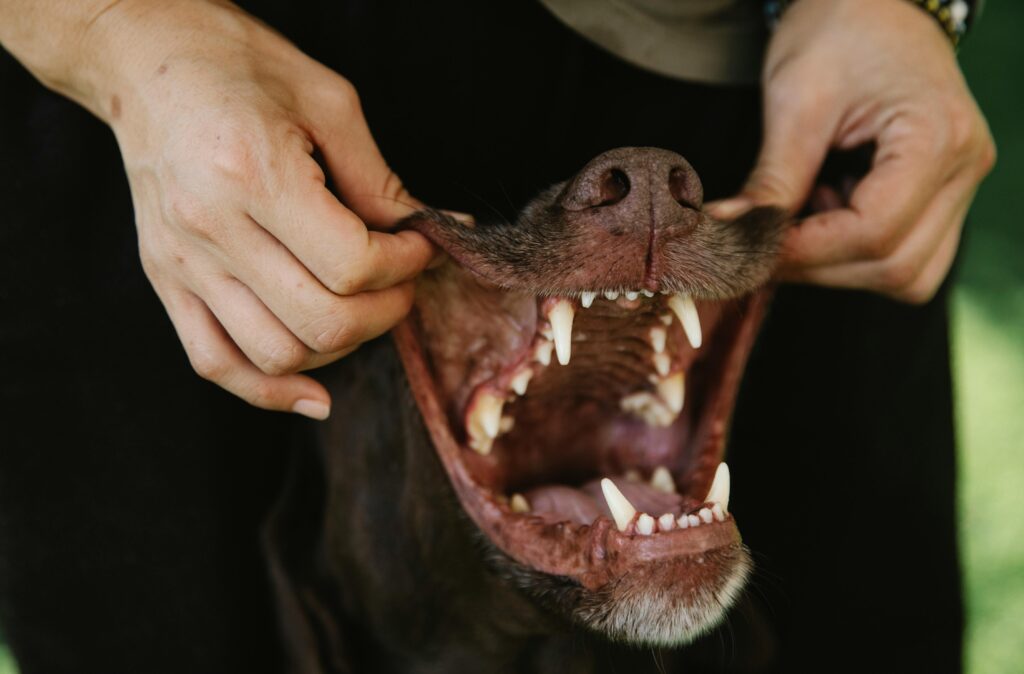
Maintaining your senior dog’s dental health is vital to their overall well-being. As dogs age, they become more prone to dental issues like gum disease, tooth decay, and infections. Neglecting their oral hygiene can lead to discomfort, difficulty eating, and even serious health problems. The good news is that cleaning your senior dog’s teeth at home can help prevent these issues and improve their quality of life. Here are some best practices to follow for keeping your senior dog’s teeth clean and healthy.
1. Use the Right Tools
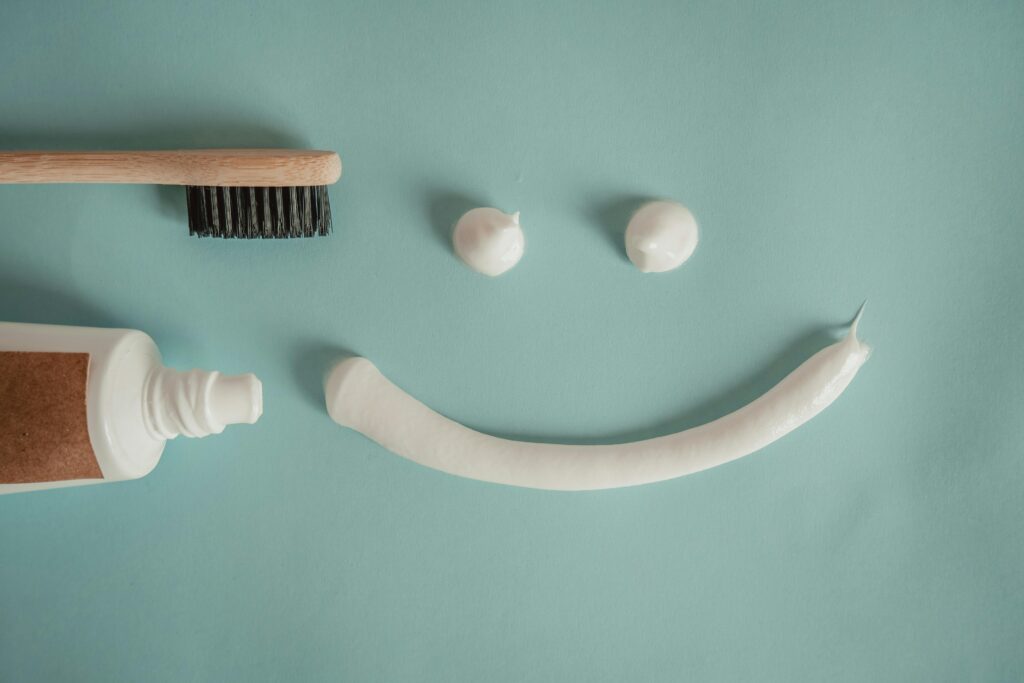
Choosing the correct tools for your dog’s oral care is essential. You’ll need a toothbrush designed for dogs, which is softer and more flexible than human toothbrushes, making it easier to maneuver in your dog’s mouth. If your dog is uncomfortable with a brush, a finger brush can be a gentler option. Most importantly, use dog-specific toothpaste. Human toothpaste can contain ingredients that are harmful to dogs, such as fluoride or xylitol.
2. Introduce Brushing Gradually
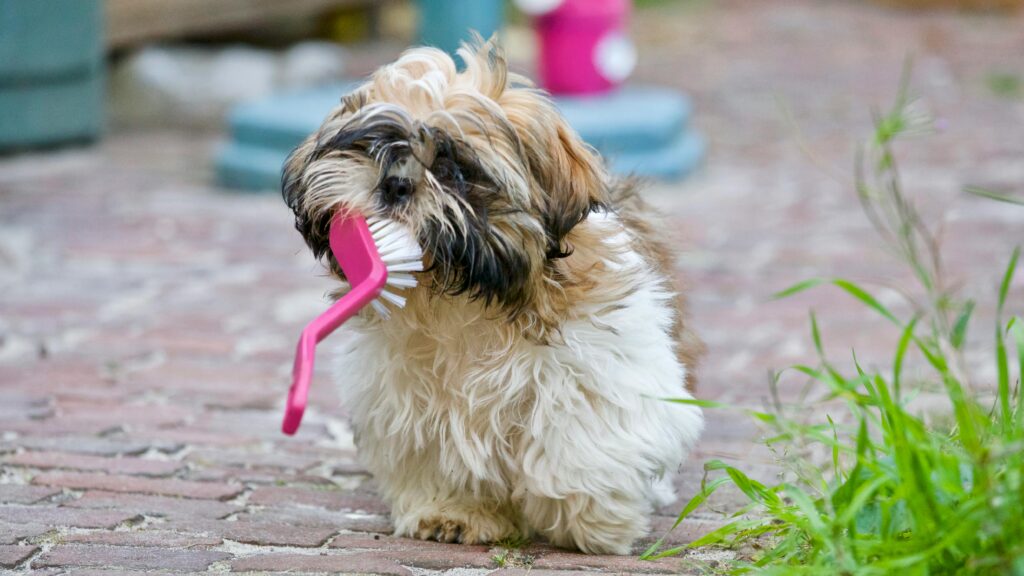
If your senior dog isn’t used to having their teeth brushed, it’s important to introduce the process slowly. Start by letting your dog sniff and taste the toothpaste to get them familiar with it. Then, gently rub your finger along their gums to help them become accustomed to the sensation. Gradually introduce the toothbrush by brushing just a few teeth at first, rewarding them with praise or a treat afterward. Over time, increase the brushing until you can clean all their teeth in one session.
3. Brush Regularly
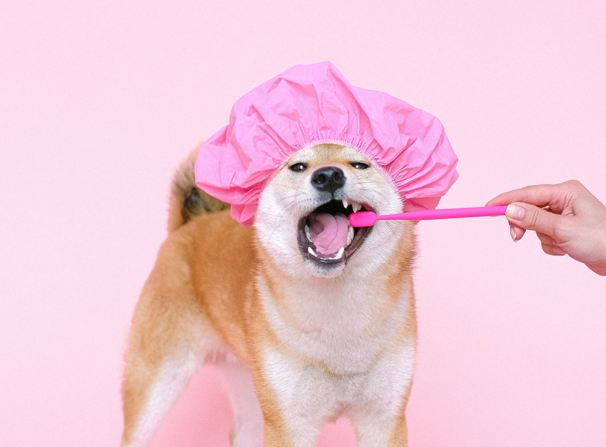
Brushing your dog’s teeth at least 2-3 times a week is ideal, though daily brushing is even better. Regular brushing helps prevent plaque buildup, which can harden into tartar and lead to gum disease. Be patient and consistent, as making this part of your routine will benefit your dog in the long run. If daily brushing seems overwhelming, aim for a schedule that works for both you and your dog and stick to it.
4. Check for Signs of Dental Problems
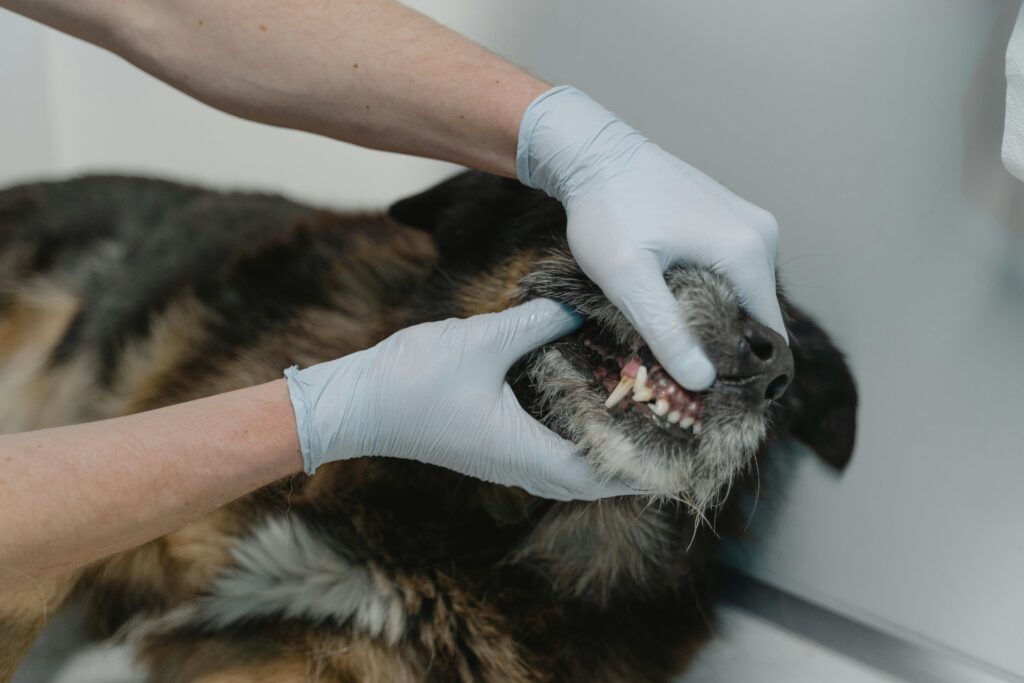
While brushing, take the time to check for signs of dental issues. Look for symptoms like bad breath, inflamed or bleeding gums, loose teeth, or changes in eating behavior. If your dog is hesitant to chew or seems to be in pain while eating, this could be a sign of dental discomfort. Regular at-home checks, combined with annual vet visits, can help catch dental problems early.
5. Provide Dental Chews and Toys
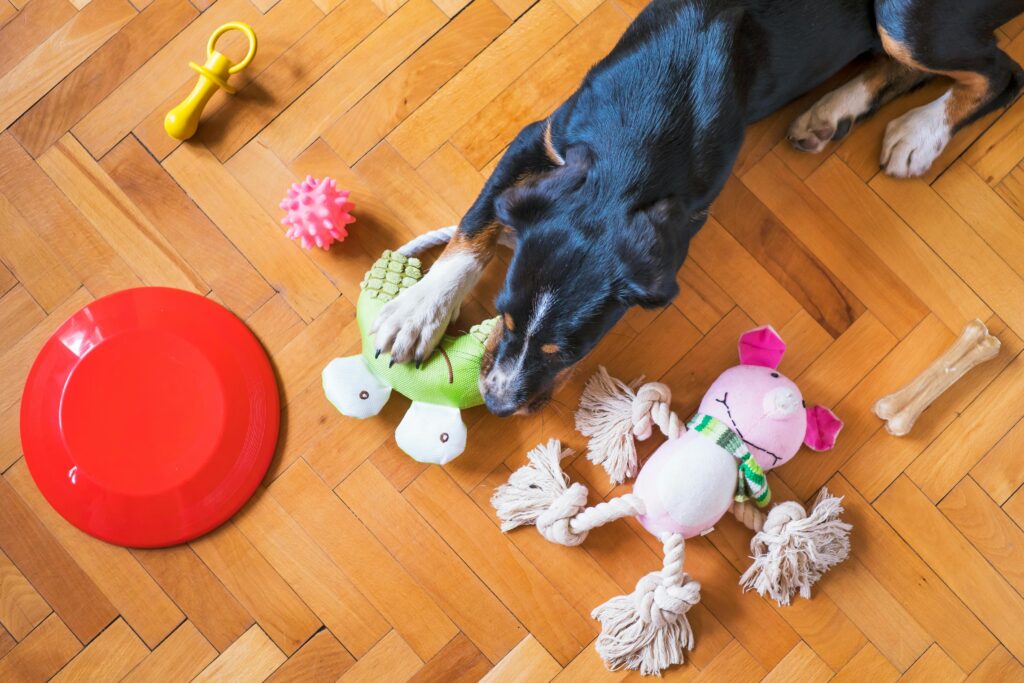
Dental chews and toys designed for senior dogs can supplement your dog’s oral care routine. These chews help remove plaque and stimulate the gums while providing entertainment for your dog. Be sure to choose options that are safe for senior dogs, as older dogs may have weaker teeth and gums. Look for softer dental chews or toys that promote oral health without causing damage.
6. Offer a Healthy Diet
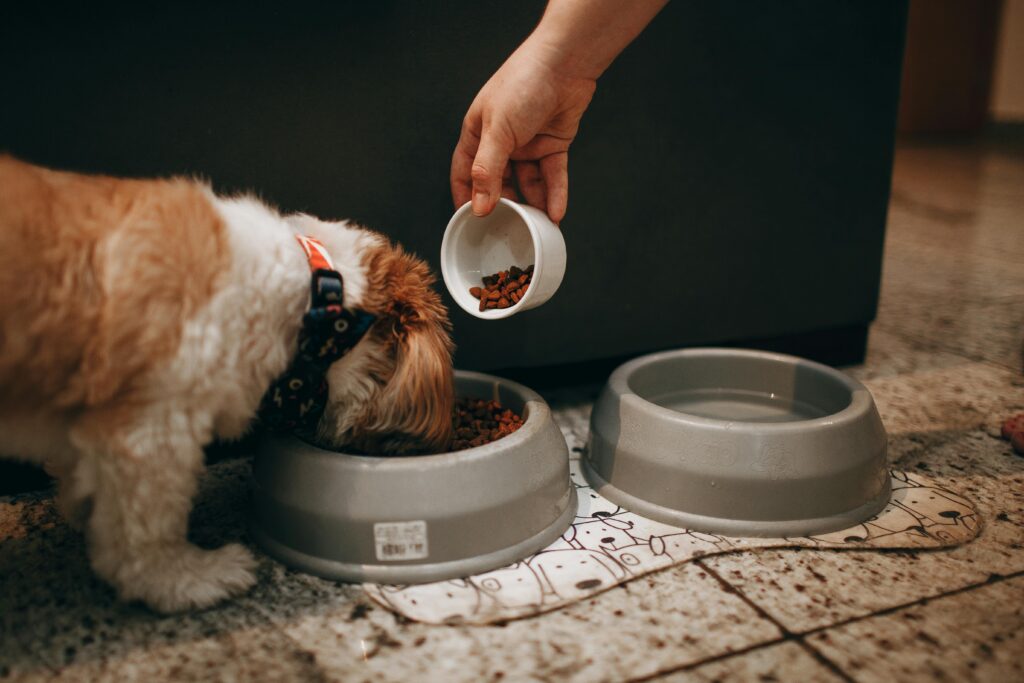
A proper diet is key to maintaining your senior dog’s dental health. Some dog foods are specifically formulated to promote dental hygiene, reducing plaque and tartar buildup. Consult your vet to determine the best food for your senior dog’s specific needs. You can also incorporate fresh, crunchy vegetables like carrots into their diet, as they act as natural teeth cleaners.
7. Schedule Regular Vet Checkups
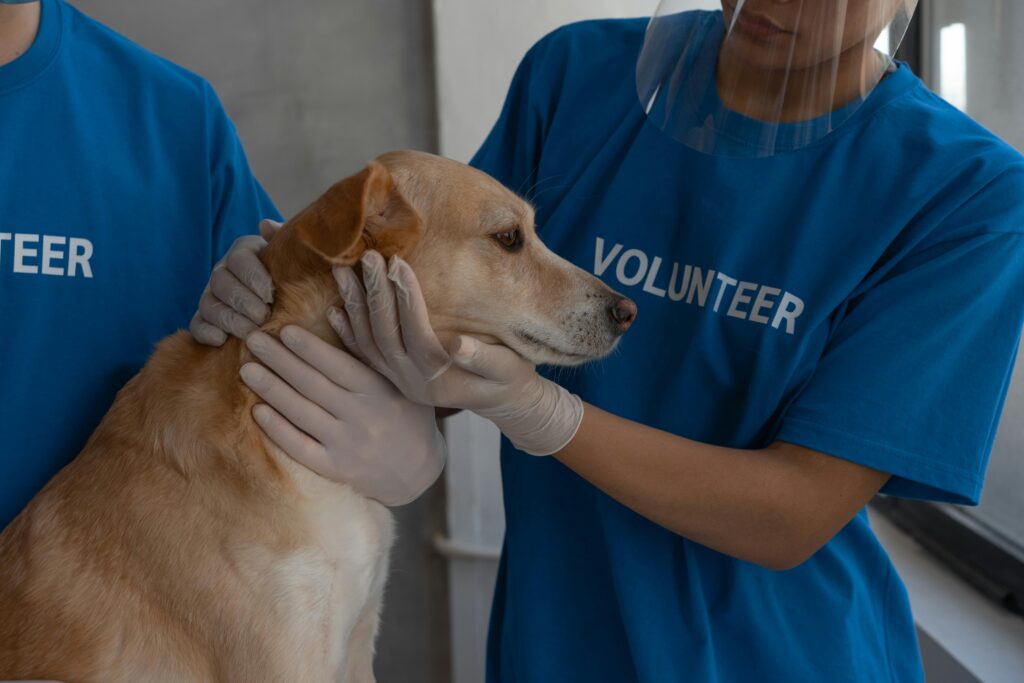
Even with diligent at-home care, regular veterinary checkups are crucial for your senior dog’s dental health. Your vet can provide professional cleaning and check for any underlying issues that may not be apparent during at-home care. It’s recommended to schedule a dental checkup at least once a year, though older dogs with dental issues may need more frequent visits.
8. Be Gentle and Patient

Older dogs may have sensitive gums or worn-down teeth, so it’s important to be gentle when brushing their teeth. Use light pressure and be mindful of any signs of discomfort. If your dog seems anxious or resistant, take breaks and try again later. Keeping the experience positive and stress-free will help your dog associate toothbrushing with a rewarding routine.
Conclusion
Maintaining your senior dog’s dental hygiene at home doesn’t have to be a difficult task. With the right tools, a gradual approach, and regular care, you can help ensure that your dog’s teeth stay clean and healthy. Remember, proper dental care not only improves your dog’s oral health but also contributes to their overall well-being as they age. Regular brushing, a healthy diet, and vet checkups will keep your senior dog smiling well into their golden years!
